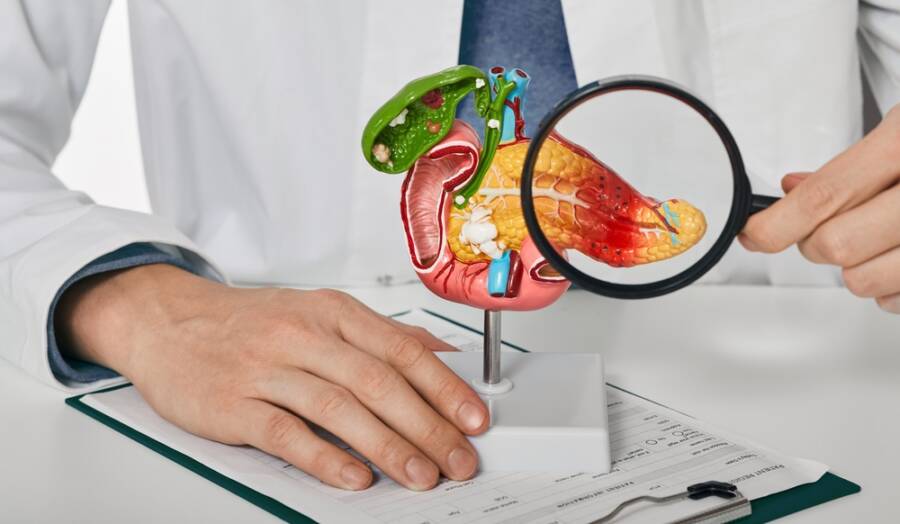Bet you didn’t know all these common foods that can help you heal faster after surgery!
To say surgery is an unpleasant experience would of course be a massive understatement, and the statistics bear that out as the average American undergoes an average of 9.2 surgical procedures (3.4 inpatient operations, 2.6 outpatient operations, and 3.2 non-operating room invasive procedures) per lifetime.
And while we have total faith in our medical professionals and their post surgery care, we can also aid in the healing process ourselves with the foods we consume. Nutrition is the key when it comes to speeding up the recovery process, so, that’s why we have got 10 foods that will help you transition back to some semblance of normality and aid you in fighting off infections, accelerating healing, increasing your strength and energy and help you maintain your nutrient stores.

Berries
What’s not to love about these juicy, rounded, brightly colored, sweet, sour, or tart little versatile fruits? Packed with antioxidants, these nutritional wonders can really help your body repair any damage and not only that, but they are also a wonderful source of vitamin C. Research has shown that vitamin C can aid in rebuilding collagen and soft tissue, which means they are perfect for helping incisions heal faster.
And you have quite a selection to choose from when it comes to berries, such as – grapes, pomegranates, blueberries, raspberries, strawberries, goji berries, and blackberries.
Vegetables
Although rather a catch all term, the vitamins and nutrients in a wide range of vegetables are some of the most important nutrients to help the healing process. The carbohydrates will help you battle the fatigue that everyone feels after surgery, as well as provide your brain with some much needed energy, whilst simultaneously stopping your muscles from breaking down.
Your body will also get an increase in vitamins A and C, as well as provide you with fiber to counteract constipation, which is a common side effect of pain medication and decreased mobility.
Like with berries, you’re spoiled for choice when it comes to the health giving properties of vegetables: carrots, sweet bell peppers, broccoli, cauliflower, cabbage, Brussels sprouts, sweet potatoes, and potatoes.
Fats
While fats have got themselves a bit of a bad reputation, not all fats are created equal. Healthy fats are a crucial component for helping your body absorb the vitamins you get from eating the aforementioned fruits and vegetables.
Fats also provide your body with energy that can be long lasting and some are rich in vitamin E, like nuts (almonds in particular), which help wounds heal faster and reduce the appearance of scars.
Foods with healthy fats include olive oil, avocados, coconut oil, nuts, and seeds.
Dark Leafy Greens
We are almost certain that your mother nagged you to eat your greens, and not only did she have a point, but if you are recovering from surgery, those dark leafy greens are essential for blood clotting as they are rich in a whole host of vitamins like vitamin A, C, and E, as well as vitamin K. Not only that, you’ll be absorbing the B-complex vitamins which aid in boosting your energy levels.
We’re not done just yet as those greens are also packed with fiber, iron, magnesium, potassium, and calcium.
So, maybe you should try some of these on your plate: kale, spinach, Swiss chard, bok choy, mustard greens, and romaine lettuce.

Meat or Alternatives
The older we get, the more vital it is to have protein as part of our diets, and if you are recovering from surgery, your body will need high amounts of protein and iron. The regenerative power of amino acids cannot be underestimated as the protein will help repair any potential muscle damage and speed up the healing of any wounds.
The iron will create new blood cells and help you regain some of your energy and while you might suffer from digestive issues after surgery, slow cooked meats in sauces or ground meats can help you eat this vital source of protein with ease.
It’s not just meats that are high in protein too, you can also get it from poultry, seafood, beans and lentils, nuts, eggs, and tofu.
Eggs
What can we say about eggs? Nature has just packaged a super healing food in something that can be cooked in all manner of ways and one that is first on the menu for those recovering from surgery and for good reason. This little nutrient packed powerhouse has everything a person going through recovery could ask for and it’s astonishing just how much that shell contains.
Just one egg can provide you with 6 grams of protein, vitamins A, E, and K, B complex vitamins (including B12), riboflavin, folic acid, calcium, zinc, and iron.
Probiotics
Much like with fats, bacteria has also got a bit of a bad reputation as we associate the word largely with unclean, disease spreading things. However, probiotics are a crucial part of the digestive process, helping your body to digest food, provide mental balance, and fight off all the potential germs and infections that could come after a surgical procedure.
Anesthetics, antibiotics, and painkillers can truly wreak havoc on our guts, leaving us with digestive upsets, constipation, and nausea, but with probiotics, you can regulate your system.
Here’s how you can get a good dose of probiotics, with yogurt, kefir, sauerkraut, and kimchi.

Vibrant Colored Fruits
We’ve already covered berries at the start of our list, but there are so many more colorful fruits that have so much to offer when it comes to aiding your recovery. While animals in nature usually display bright colors to tell predators ‘I’m super poisonous, so maybe don’t eat me’, colorful fruits are quite the opposite.
Loaded with vitamins A and C, carbohydrates, fiber, antioxidants, and the nutritious calories your body needs to get back to normal, they are also easily consumed if you are struggling to eat after surgery.
Which colors of the fruit (and even other foods) rainbow should you eat? The answer is simple: oranges, apples, berries, melon, apricots, peaches, grapefruit, mango, papaya, and tomatoes!
And if eating based on a rainbow sounds appealing to you, maybe you should look more into the rainbow diet! Here is a great book that explains all it is about!
Whole grains
Grains have been with us for a long time, studies suggest that humans may have been eating grains for at least 100,000 years, so not only does your grandma know best, but your great, great, great, great….. ok, you get the idea.
And although you might not be recovering from being mauled by a saber toothed tiger, whole grains contain vital carbohydrates your brain needs for energy and stops your muscles from breaking down. Those carbohydrates are going to be a great way to bring your energy levels back to some sort of normality as well as provide you with some much needed fiber.
Eat like your ancestors with whole wheat or rye sourdough bread, steel cut oats, quinoa, and wild rice.
Water
Our final entry is something that you should be doing regardless of coming out of surgery. You have to remember that our bodies are made up of 55-65 percent water, so hydration is a must. Depending on the type of surgery you’ve just had and the medications you’ve been prescribed, your need for fluid may be higher than usual.
And it doesn’t have to be just a glass of plain old H2O, there are many excellent sources of hydration out there, such as flavoring your water with lime or lemon, drinking coconut water, eating high water content foods like soup, preparing a smoothie with extra fluid, and drinking herbal teas (either hot or cold).
Takeaway
We know surgery can be a traumatic experience, and one that takes its toll on both the body and the mind, but with the foods we’ve listed here, we hope to provide you with a speedy and healthy recovery and one that can be filled with all the right foods to get you back on your feet.
To make sure that you end up being as healthy as possible, insert some salads into your weekly food rotation! And these amazing recipes are bound to make salads one of your new favorite foods!













